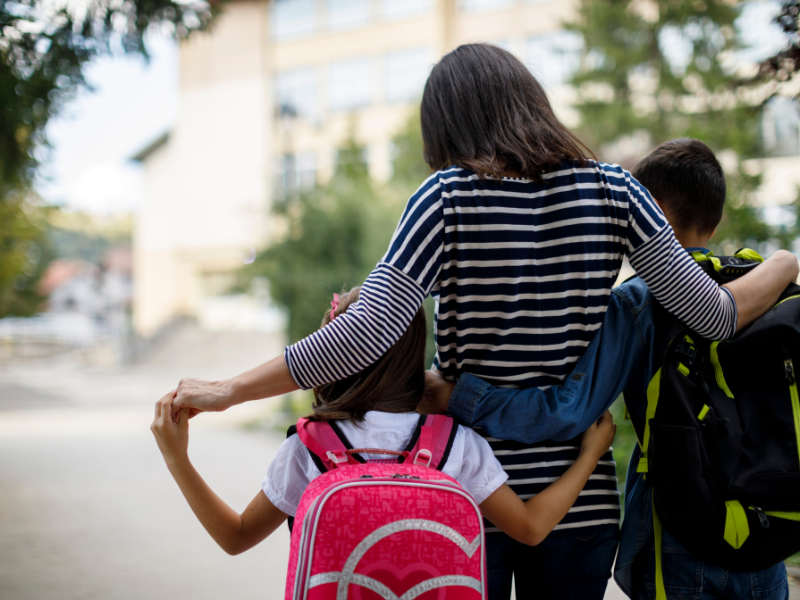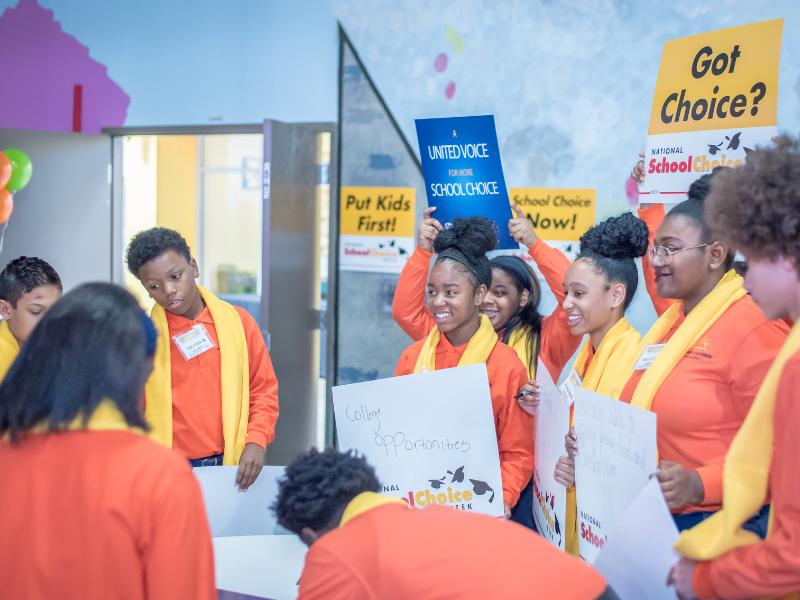
SB 233: Georgia Promise Scholarships Would Help Thousands of Students. Why Did Some Districts Vote Against It?

SB 233: Georgia Promise Scholarships Would Help Thousands of Students. Why Did Some Districts Vote Against It?
Key Points
- On March 29, 2023, Georgia Promise Scholarships (Senate Bill 233) failed by only a few votes in the House of Representatives. These leaders had another chance to vote on the bill in 2024.
- SB 233 creates a much-needed education option for students zoned for a school ranked in the bottom 25% of Georgia publis schools. Of the 16 Republicans who voted against Promise Scholarships in 2023, 13 have schools in the bottom 25%.
- More research is showing that more education choice helps public schools and translates to better academic achievement, especially for low-income students.
On March 29, 2023, the Georgia Promise Scholarship Act (Senate Bill 233) failed by a vote of 85-89 in the House of Representatives, despite passing the Georgia Senate on March 6, 2023.
At the time, that was the furthest that an education savings account bill had advanced in the Georgia Legislature. Despite having support from Governor Brian Kemp, Lt. Governor Burt Jones, and Speaker Jon Burns, the bill still came up six votes short of passage in the House.
Georgia needs Promise Scholarships to build its future workforce and prosperity
In late 2023, Governor Brian Kemp announced a new program called Georgia Match. Georgia Match seeks to connect every high school senior with a post-secondary education path that meets each student’s needs. The program brings unprecedented cooperation between the Georgia Department of Education, The Technical College System of Georgia, and the University System of Georgia. It’s not an exaggeration to say this program can potentially transform Georgia’s educational system and workforce.
SB 233 would allow students zoned for a school ranked in the bottom 25% for two consecutive years, according to Georgia’s College and Career Readiness Performance Index (CCRPI), to use a Promise Scholarship.
- Promise Scholarships would allow these families to access education options that they might not otherwise be able to afford or use. The scholarship could be applied to private school tuition, homeschooling materials, or other educational expenses defined in the bill.
- The state would put the scholarship amount ($6,500) in a parent-directed account controlled by the state of Georgia for these purposes.
Based on CCRPI scores, which were last calculated in 2018-2019, 298 schools currently fall into the bottom 25% criteria. These schools are located all across Georgia, but mostly in areas of high poverty.
It’s important to note that limiting the Promise Scholarship to only the bottom 25% of schools doesn’t cover all the schools in Georgia that receive D or F grades in CCRPI.
To see Georgia Match fulfill its potential, K-12 students must be prepared to succeed in the post-secondary education path they choose—especially those students eligible for a Promise Scholarship and those who deserve better economic and social opportunities to escape poverty.
“Our job is not decide for every family but to support them in making the best choice for their child.” — Gov. Brian Kemp, 2024 State of the State Address
“Our job is not decide for every family but to support them in making the best choice for their child.”
— Gov. Brian Kemp, 2024 State of the State Address
[16 Republican legislators opposed Promise Scholarships in 2023. Here’s why they should have changed their vote.
Over the past 10 years, Republican governors and legislators have passed and tried to implement reforms meant to improve Georgia’s lowest-performing public schools. From the failed Opportunity School District constitutional amendment to the all-but-gutted Chief Turnaround Officer legislation, efforts for transformational reform within the traditional public school system have been stifled.
Many of the schools in question also receive intensive assistance from the Department of Education (DOE) via the Comprehensive Support and Improvement (CSI) and Targeted Support and Improvement (TSI) programs. These programs require schools to develop improvement plans in close collaboration with DOE officials.
While these programs have helped, there’s an important detail that voters and parents should know about. Several of these schools in the bottom 25% of CCRPI performance today were schools that qualified for the Opportunity School District program back in 2015.
In other words, these schools are still among our state’s lowest-performing schools after eight years of intensive assistance. Should we continue to tell parents to wait for another program? If your children or grandchildren were zoned for these schools, would you tell them to wait?
For several legislators, including 16 Republican Representatives, the answer has been “yes.”
Of the 16 Republican legislators who voted against SB 233 in 2023, 13 have public schools in their districts that are in the bottom 25%. Yet all 16 of these districts have private schools ready to accept more students. In addition, Georgia has a robust homeschooling community in all corners of the state, as well as a burgeoning microschool movement. Promise Scholarship recipients can access these options no matter where they live.

Georgia’s Promise Scholarship Explained
Find out what the program is, how it works, and which students will be eligible.
To meet Georgia’s diverse student needs, the answer is to expand parental options.
If we truly want Governor Kemp’s Georgia Match program to succeed, parents need more options. If we truly want all of Georgia’s students to obtain a quality education and pursue post-secondary education that prepares them for a meaningful career and a stable life, parents need more options. If we want Georgia’s economy to continue to thrive and attract new industries to our state, parents need more options.
Expanding parental options will lift our entire educational system. To see this in action, all we need to do is look south. A November 2023 study of Florida’s educational landscape found that as school choice programs matured, the positive effects were felt across the board, including within the public schools:
“We find that as public schools are more exposed to private school choice, their students experience increasing benefits as the program matures. In particular, higher levels of private school choice exposure are associated with lower rates of suspensions and absences, and with higher standardized test scores in reading and math.”
The students showing the most gains? Students with low–socioeconomic status (SES).
Far from harming public schools, school choice actually improves public schools. Georgia’s students deserve to have this opportunity as well.
With SB 233, Georgia legislators had an incredible chance to set Georgia students on a path toward academic success and a bright future. Thankfully, SB 233 and Georgia’s kids received the support needed from lawmakers, and the Georgia Promise Scholarship passed in April 2024. The progam will become available for Georgia parents and students in Fall 2025.
Related Articles
Georgia Needs to Widen Schooling Choices in 2024
(Buzz Brockway in the Atlanta Journal-Constitution)
Georgia Promise Scholarships (SB 233): Questions and Answers
Gov. Brian Kemp Champions Education Opportunity, Calls for Unity on Promise Scholarship










